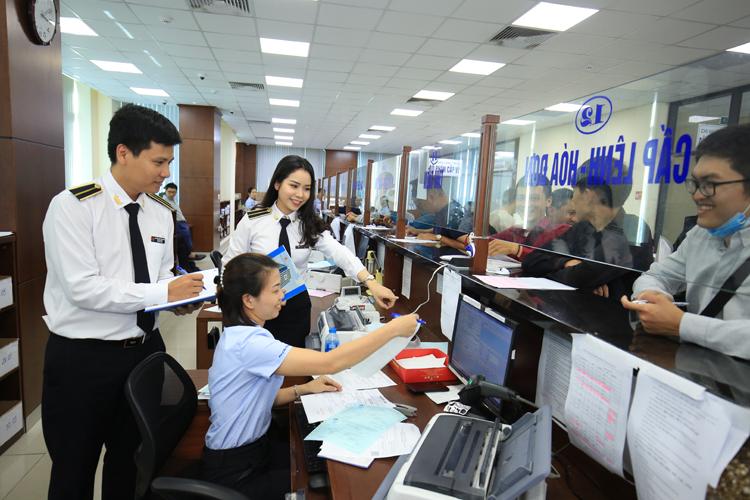According to the orientation of developing the Audit Plan for 2023 and for medium-term 2023-2025, budget audit continues to be a priority of the State Audit Office of Viet Nam (SAV). The key orientations and notes when performing this type of audit will bring important information, helping audit units and auditors to have an insight to apply in practice, thereby improving audit quality and efficiency.

Budget audit continues to be SAV's focus
Key focuses in budget audits
To date, relevant units of SAV are still actively and urgently developing the Audit Plan for 2023 in accordance with the orientation stated in Official Document No. 597/KTNN-TH on guidelines for SAV’s Audit Plan for 2023 and for the medium-term 2023-2025.
Regarding the key focuses of the budget audit, the orientation clearly states that SAV will conduct audits in general financial agencies at all levels to assure the truthfulness and fairness of the budget finalization report for the approval of the National Assembly on the State budget finalization and the People's Council on the local budget finalization (local budget).
Specifically, SAV will focus on evaluating the preparation and implementation of budget estimates and finalization, particularly the issues mentioned in the National Assembly's Resolution on approving the state budget finalisation in 2020 at the third meeting session of the National Assembly XV; the implementation of policies and solutions of the Socio-economic Recovery and Development Program according to Resolution No.43/2022/QH15 of the National Assembly on fiscal and monetary policies to support the recovery program and socio-economic development, the Government's Resolution No. 11/NQ-CP on the Socio-economic Development and Recovery Program and the implementation of Resolution No. 43/2022/QH15 of the National Assembly and Government's master program on thrift practice and anti-wastefulness for the period 2021-2025.
“Risk assessment and materiality level of management and use of state budget in each ministry and province are the basis to clearly define expected audit objectives and key audit contents act as a basis for selecting the list of appropriate audit focal points,” - the orientation clearly stated.
The representative of Department of General Affairs said that local budget audit and local budget finalization audit report are key focuses in the annual Audit Plan. According to SAV's new orientation, each regional state audit office shall only select a maximum of 2 provinces to conduct the current comprehensive local audit, with the remaining to do the audit on the local budget finalization reports. Typically, in 2022, 10 provinces/cities will audit local budget finalization reports; 28 provinces/cities will audit local budget and local budget finalization reports.
Referring to the development of the Audit Plan, the Regional State Audit Office No. V submitted its plan for the Audit Plan 2023 and the Audit Plan for the period of 2023-2025, focusing on completing the detailed list of audited focal points, units and projects of the audits. “With the characteristics of being located in the region, the Regional State Audit Office No. V focuses on the task of budget audit, which will gradually turn to focusing on auditing local budget finalisation reports in line with SAV's orientation.
Notes on improving the quality of local budget audits
Considering the current increased requirements and tasks for audit activities in general and budget audits in particular, ensuring the implementation at each stage directly related to audit activities will be an important contribution to improving audit quality.
According to a representative of the Division of Local Budget (Department of General Affairs), in order to achieve the quality and effectiveness of the audit in line with the objectives, the units should devote to the development of the Audit Plan from the beginning by conducting surveys, collecting and analyzing information to determine the materiality accounts and balances to arrange appropriate personnel for successful task performance.
Paying attention to the materiality of information at both planning and implementation stages, the representative of the Division of Local Budget (Department of Audit Policies and Quality Control) said that the audit teams should combine the assessment of inherent risks and control risks to draw conclusions on the risks of materiality at the financial statement and assertion levels. Moreover, it is important to include materiality items in the finalization report that are larger than the overall materiality level, contents and items of high inherent risks and control risks while abiding by the material content according to SAV's Guidelines.
Noted by the audit of local budget finalization reports, many experienced auditors in local budget audit believe that it is necessary to strengthen the general audit, apply risk-based audit approach, determine the materiality to evaluate the finalization reports of the subordinate units that are summarized in the local budget finalization report; select auditors with experience, qualifications and in-depth expertise in data aggregation, etc. Moreover, auditors have to ensure the keeping of daily audit journals to avoid such cases, including the fact that the journals only reflect the auditee data, not the auditor's assessments and audit results and are incompletely attached with evidence or spreadsheets related to audit findings.
"We should organize a thorough grasp of SAV’s Guidelines on the objectives and main content in each audit area, clearly identify the focus in each local budget audit content. During the audit process, the audit delegation should encourage the audit teams to collectively exchange the audit situation and results of the members; as well as difficulties, problems or new findings to agree on comments, assessments and recommendations in the delegation", said the representative of the Regional State Audit Office No. XIII, which has great results in the audit of many local budgets.